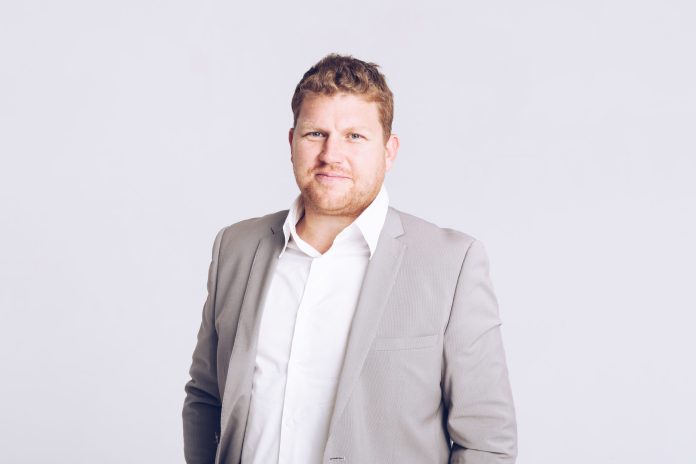An extra R11 billion has been allocated by Minister of Finance Enoch Godongwana to the South African Special Risks Insurance Association (Sasria) to assist with ongoing business claims from the civil unrest that took place in July, it was announced in the Medium-Term Budget Policy Statement tabled on 4 November. According to Sasria, the unrest came with a R20 billion price tag to the KwaZulu-Natal economy, while the impact on the national GDP is estimated to be about R50 billion. National Treasury has reported that it could take up to two years for the country to recover from the blow dealt to the economy.
However, from an investor perspective, the psychological impact is likely to far outweigh the economic consequences for a long time going forward due to the perceived fragility of social cohesion in the country, according to Jason Griessel, Director: Strategic Risk Management at Broll Risk Management. Griessel says that civil unrest incidents from the 1940s, 1980s, early 1990s and now 2021 indicate that “ultimately we are looking at a cyclical event.”
He adds: “When we talk to investors and advise them that the data indicates a 15- to 20-year event, they look at us as if we are crazy, but the data tells us that this is the reality we need to prepare for.” Griessel says that what the July unrest clearly underscored was the urgent need for businesses “to prepare their infrastructure and facilities to be able to weather a 72-hour to week-long civil unrest event in specific areas.”
The July unrest was particularly catastrophic due to external factors such as socioeconomic and service delivery challenges that exacerbated existing tension lines, which then combusted spontaneously to create a firestorm event. “It is critical that businesses inculcate an institutional understanding that gives them insight into cyclical patterns in the territories or areas in which they are operating.”
This is where Broll Risk Management comes into play, which forms part of leading Pan-African professional real-estate services provider Broll Property Group. “Forecasting and the ability to be forward-looking does not imply that we have a crystal ball. However, there are enough data sets available producing sufficient information to allow us to predict these kinds of events.”
Here Griessel points to the #EndSars mass protests in Nigeria in 2020 as an example of the kind of critical social media topics that can be monitored for any spike in activity. Having specifically dealt with this scale of crisis before, Broll Risk Management has created modelling that enables it to better understand milestones during such events and any changes as they run their course to better support and inform its clients.
“This then opens up the next layer for us to start looking at it in more depth and communicate to businesses that we are monitoring a potentially developing situation. While there is no cause to panic at such an early stage, let us just ensure that all of our business continuity, resilience and risk mitigation ducks are in a row,” says Griessel. He adds that business continuity is often misunderstood as an IT functionality in the digital age. However, it encompasses emergency-response planning for evacuation and dealing with unforeseen contingencies such as civil disturbances, for example.
Broll Risk Management already undertakes this kind of proactive strategising for a number of listed clients, whereby it not only finetunes the business continuity planning, but can test it in order to highlight any weaknesses and determine where improvements need to be made. This framework includes vetting and assessing external vendors, especially if these are responsible for operationalising any emergency plan. “As we saw in KwaZulu-Natal, for example, there was a definite void in the provision of security services,” notes Griessel.
Apart from its external client base, Broll Risk Management also performs this function for Broll Property Group, which has as its core strategy a focus on technology, innovation and expertise in order to position itself as the leading professional real-estate service provider. “We cater for governance and compliance in terms of inward-facing risks, while our outward-facing offering is to develop enterprise risk strategies that allow our clients to build resilience into their portfolios, as well as assist them to break ground in new markets, especially in Africa.
“When a business enters a new market, it has to have the necessary intelligence about the strengths, weaknesses and potential risks. Here strategic risk not only includes health, safety and the environment, but we also look at the reputational aspects of the business,” says Griessel. Broll Risk Management deals with all supply chain and insurance risk whilst forecasting, which means ensuring that all clearances and approvals are in place from a regulatory and governmental perspective, depending on the type of business operation or investment.
While Covid-19 has had a major impact on project and business cycles, Griessel stresses that it has “propelled an efficiency layer that has been required in businesses and personnel for a long time. It has now enabled us to only focus on those projects that are necessary, with anything on the periphery having fallen away. The reality is that you end up focusing on the right kinds of people and engage only with meaningful stakeholders that can add tangible value.”
Griessel believes that the current Covid-19 regulations also need to be more geared towards enabling businesses to operate normally. “Blanket laws and prescribed operational standards and procedures do not take into account that many companies lack the resources to implement these.” Looking at load-shedding as a growing risk to be managed, Griessel highlights that there is now sufficient opportunity due to legislative amendment for businesses to create their own power redundancies.
“Every company should be resourcing their capacity to handle crisis and emergency if they profess to be serious about business continuity. We can hope that the situation will improve in the short to medium term, but the data over the last number of years indicates that the situation is actually deteriorating.” Broll Risk Management has also provided some of its clients with access to funding in order to start building such a power redundancy within their broader businesses.
Griessel’s final message to companies is that it is too late to start mobilising resources when already in a crisis situation. “In reality, it will take six months to look at your business continuity plan and ensure that you have a capably trained crisis management team in place, together with the necessary budgetary allocation. Unfortunately, in most instances, anything related to risk is perceived as a grudge purchase. In terms of risk management in a South African context, we have tended to rely on State-owned entities like Sasria to carry the burden of any major eventualities.”
However, companies are increasingly turning to an expert like Broll Risk Management that is firmly embedded in the continent to assist them in navigating their risk. “We manage complex risk for many multinationals with major investments and portfolios in both South Africa and across the continent. It is not something that you can avoid totally, but what we learnt early on is that, even by means of forecasting risk, businesses and supply chains are in a much better position than they would have been without such intelligence at hand,” concludes Griessel.
About Broll Property Group
Broll Property Group is the largest independently-owned and proudly South African commercial property services company. With operations across 13 countries in Africa and 2,000+ personnel, we offer high-performing solutions built on a culture of innovation, distinguished by service excellence and longstanding client relationships – which is why we are renowned as the ‘progressive property people’.
Broll Property Group Contact
Hilton Rose
Group Marketing Head
Marketing, Brand & Communications
Phone: +27 11 441 4061
Web: www.broll.com
Email: [email protected]
Media Contact
Renay Tandy
Communications Director
NGAGE Public Relations
Phone: (011) 867-7763
Fax: 086 512 3352
Cell: 082 562 5088
Email: [email protected]
Web: www.ngage.co.za
Browse the NGAGE Media Zone for more client press releases and photographs at http://media.ngage.co.za












